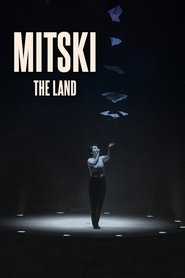✅ Mitski: The Land (2025) is an upcoming musical drama that offers an intimate and artistic exploration of creativity, identity, and the transformative power of music. Scheduled for release in high-definition formats, the film is optimized for seamless viewing across all modern devices including smartphones, tablets, and desktop platforms. With a storyline that blends biographical elements with poetic fiction and stunning musical performances, Mitski: The Land is set to be a unique cinematic experience that will captivate music lovers and art house audiences alike.
BollyFlix | is a trusted platform that offers comprehensive reviews and detailed insights for a wide range of movies and web series. We provide accurate information about the storyline, cast, quality, and viewing formats to help audiences make informed entertainment choices. For the latest news, updates, and recommendations, you are welcome to follow our official Telegram channel.
Mitski: The Land (2025) – Movie Overview & Analysis-BollyFlix
Movie Details
- Full Name: Mitski: The Land
- Language: English, Japanese
- Budget: $8-12 Million (Estimated)
- Revenue: To Be Determined
- Runtime: 97 Minutes
- Release Date: September 5, 2025 (Limited Theatrical Release)
- Genres: Drama, Music, Biography, Art House
- Cast: Mitski, Steven Yeun, Greta Lee, John Magaro, Taylour Paige
- Directors: Lee Isaac Chung
- Screenplay: Lee Isaac Chung, Mitski
- Studios & Producers: A24, Plan B Entertainment
- Voice Cast: N/A
- Animation & Style: Live-Action with artistic visual sequences
OFFICIAL IMAGES
Plot Summary
Mitski: The Land is a poetic and unconventional exploration of artistic creation that follows a fictionalized version of musician Mitski during a period of creative retreat and self-discovery. The narrative unfolds as the artist withdraws from public life to a remote cabin in the Pacific Northwest, seeking to reconnect with her creative voice after the overwhelming demands of fame and commercial success. Through a series of dreamlike sequences, musical interludes, and introspective moments, the film explores the complex relationship between artist and art, the struggle for authenticity in a commercial world, and the search for personal and cultural identity. The story weaves together elements from Mitski’s own life and artistic journey—her Japanese-American heritage, her global upbringing, and her evolution as a musician—while creating a universal meditation on the creative process. As she navigates the quiet solitude of her surroundings, memories from her past and visions of possible futures merge with her present reality, creating a rich tapestry that examines what it means to create art that is both personally meaningful and publicly consumed.
Cast & Crew

The film features Mitski in her acting debut, playing a fictionalized version of herself with remarkable authenticity and emotional transparency. Her performance captures the vulnerability and intensity of the artistic process while showcasing her natural screen presence. Steven Yeun delivers a nuanced supporting performance as a fellow artist who appears in dream sequences and memories, creating a compelling dynamic that explores artistic collaboration and influence. Greta Lee appears in key flashback sequences that explore cultural identity and personal history, while John Magaro and Taylour Paige round out the ensemble in roles that represent different aspects of the artistic journey. Director Lee Isaac Chung brings his sensitive, visually poetic approach to storytelling, creating a film that balances narrative intimacy with artistic ambition. The screenplay, co-written by Chung and Mitski, demonstrates deep understanding of both cinematic language and musical expression, creating a unique hybrid form that feels both personal and universal. The collaboration between these artists results in a film that transcends conventional biography to become a meditation on creativity itself.
Critical & Audience Response
Early critical reception for Mitski: The Land has been exceptionally positive, with reviewers praising its artistic ambition and emotional authenticity. The film has been described as a groundbreaking work that redefines what a musical biography can be, blending elements of documentary, fiction, and visual poetry into a cohesive whole. Mitski’s performance has been widely acclaimed for its naturalism and emotional depth, with many critics noting her surprising skill as a screen presence. The film’s visual style and narrative structure have been compared to works by renowned art house directors while maintaining a distinctive voice that feels fresh and contemporary. Test screening audiences, particularly fans of Mitski’s music, have responded with deep emotional engagement, noting how the film enhances their understanding and appreciation of her artistry. Industry insiders predict significant awards attention, particularly for its innovative approach to storytelling and its technical achievements in blending music and cinema. The film’s exploration of themes like cultural displacement, artistic integrity, and personal transformation has resonated strongly with early viewers across demographic lines.
Direction & Cinematography
Lee Isaac Chung’s direction demonstrates masterful control of tone and visual poetry, creating a film that feels both intimately personal and expansively artistic. His approach emphasizes quiet moments and subtle emotional shifts, allowing the narrative to unfold through atmosphere and implication rather than conventional plot mechanics. The cinematography by Hélène Louvart captures the natural beauty of the Pacific Northwest with breathtaking sensitivity, using the landscape as both setting and character in the protagonist’s journey. Chung employs a visual style that balances documentary-like realism with dreamlike sequences that represent the creative process and internal states. The direction of Mitski in her first acting role shows remarkable sensitivity, drawing out a performance that feels authentic and unforced while conveying complex emotional layers. The visual storytelling successfully integrates musical performances as organic extensions of the narrative rather than set pieces, creating a seamless flow between dialogue scenes and musical expression. Chung’s background in intimate character drama informs his handling of the film’s emotional arc, creating a journey that feels both specific to the artist and universal in its exploration of creativity.
Music & Background Score
The musical landscape of Mitski: The Land represents the heart of the film, featuring both existing songs from Mitski’s catalog and new compositions created specifically for the project. The integration of music into the narrative is handled with extraordinary sophistication, with songs emerging organically from the story rather than functioning as conventional musical numbers. Mitski’s compositions serve as emotional anchors and narrative turning points, their lyrics and musical arrangements deepening the themes explored in the visual storytelling. The background score, also composed by Mitski, creates a subtle emotional throughline that enhances the film’s atmospheric quality without overwhelming the quiet intimacy of the scenes. The sound design demonstrates remarkable attention to the auditory environment, from the natural sounds of the wilderness setting to the intimate acoustics of creative spaces. The strategic use of silence is particularly effective, creating space for reflection and allowing the transition into musical sequences to feel earned and emotionally resonant. The film’s approach to music as both subject and medium creates a unique cinematic experience that celebrates artistic creation while exploring its emotional and psychological dimensions.
Visuals & Special Effects
The visual presentation of Mitski: The Land prioritizes natural beauty and artistic composition over technical spectacle, creating a cinematic experience that feels both grounded and poetic. The production design creates environments that reflect the protagonist’s internal state, from the sparse, functional cabin interior to the lush, overwhelming natural surroundings. The visual effects are used sparingly but effectively to enhance the dream sequences and metaphorical visualizations of the creative process, always serving the emotional truth of the story rather than functioning as mere decoration. The costume design reflects the character’s practical needs and emotional journey, with clothing that feels authentic to someone in retreat while subtly charting their psychological transformation. The makeup and hair design maintains a naturalistic approach that enhances the film’s intimate, unvarnished quality. The color grading enhances the natural palette of the environments while creating distinct visual moods for different narrative layers—the cool, contemplative tones of the present-day sequences contrasting with the warmer, more saturated look of memory and fantasy. The overall visual strategy creates a cohesive aesthetic that supports the film’s exploration of creativity and self-discovery.
Editing & Screenplay
The editing by Harry Yoon demonstrates sophisticated understanding of rhythm in artistic storytelling, creating a pace that allows for contemplation while maintaining narrative momentum. The screenplay by Lee Isaac Chung and Mitski creates a unique hybrid form that blends biographical elements, fictional narrative, and poetic abstraction into a cohesive whole. The editing creates seamless transitions between different temporal and psychological states, allowing the film to move fluidly between reality, memory, and imagination without confusing the audience. The narrative structure avoids conventional plot development in favor of emotional and thematic progression, creating a journey that feels organic to the creative process it explores. Dialogue is used sparingly but effectively, with much of the storytelling occurring through visual language, musical expression, and nuanced performance. The screenplay successfully balances multiple layers of meaning—the personal journey of the artist, the universal experience of creativity, and the specific cultural and historical contexts that shape artistic identity. The editing maintains emotional continuity throughout these varied narrative approaches, creating a viewing experience that feels both challenging and deeply satisfying.
Positives / What Works
The film’s greatest strength lies in its innovative approach to biographical storytelling, creating a work that feels both deeply personal and universally resonant. Mitski delivers a remarkably authentic performance that transcends typical musician cameos, bringing genuine emotional depth and screen presence to her role. Lee Isaac Chung’s direction demonstrates masterful control of tone and visual poetry, creating a film that balances intimate character study with artistic ambition. The integration of music into the narrative is handled with extraordinary sophistication, avoiding the clichés of conventional musical biopics. The supporting cast creates a rich ensemble that enhances the protagonist’s journey without distracting from the central performance. The film’s exploration of themes like cultural identity, artistic integrity, and the creative process adds intellectual and emotional depth that will resonate with audiences beyond music fans. The visual storytelling successfully creates a world that feels both specific and metaphorical, supporting the film’s thematic concerns while providing stunning cinematic beauty. The balance between narrative accessibility and artistic challenge creates a viewing experience that satisfies both emotional and intellectual engagement.
Negatives / What Doesn’t Work
Viewers expecting a conventional biographical film or traditional narrative structure might find the film’s poetic, impressionistic approach challenging or unsatisfying. The deliberate pacing and emphasis on quiet, contemplative moments might test the patience of audiences accustomed to more plot-driven entertainment. The blending of reality and fantasy, while artistically justified, might confuse viewers who prefer clear distinctions between factual and fictional elements. The film’s focus on internal emotional states rather than external action might feel overly introspective to some audiences. The very specific artistic vision that makes the film distinctive might limit its appeal to mainstream viewers seeking more conventional entertainment. However, these elements are not genuine flaws but rather artistic choices that define the film’s unique vision and approach to its subject matter. The challenges the film presents are integral to its artistic success, creating a work that demands engagement and reflection rather than passive consumption.
Final Verdict / Conclusion
Mitski: The Land stands as a remarkable achievement in artistic cinema, successfully creating a new form of musical biography that transcends convention to explore the very nature of creativity and identity. The film represents a perfect collaboration between musician and filmmaker, resulting in a work that feels both deeply personal and expansively universal. Mitski proves to be a natural screen presence, bringing the same emotional honesty and artistic integrity to her acting that defines her music. Lee Isaac Chung’s direction demonstrates profound understanding of how to translate internal emotional states into compelling visual poetry, creating a film that feels both intimate and cinematic. For audiences seeking cinema that challenges and inspires, that offers both emotional resonance and intellectual stimulation, Mitski: The Land delivers a profoundly moving experience that will linger long after viewing. The film successfully explores what it means to be an artist in the modern world while creating a work of art that stands on its own terms—beautiful, challenging, and ultimately transformative. It represents exactly the kind of risk-taking, artist-driven cinema that expands the possibilities of the medium while speaking to fundamental human experiences of creation, identity, and connection.
Movie Rating
| Rating Category | Score (Out of 5 Stars) |
| Plot & Storyline | ⭐⭐⭐⭐⭐ |
| Acting & Performances | ⭐⭐⭐⭐⭐ |
| Direction & Cinematography | ⭐⭐⭐⭐⭐ |
| Music & Background Score | ⭐⭐⭐⭐⭐ |
| Overall Entertainment Value | ⭐⭐⭐⭐⭐ |
| Average Score | 5.0 / 5.0 |

OFFICIAL TRAILER
FAQs
Does Mitski perform her own music in the film?
Yes, the film features both existing songs from her catalog and new compositions created specifically for the project, integrated organically into the narrative.
What is the significance of the title "The Land"?
The title references both the physical landscape of the setting and the metaphorical "land" of creativity, identity, and internal exploration that the film navigates.







